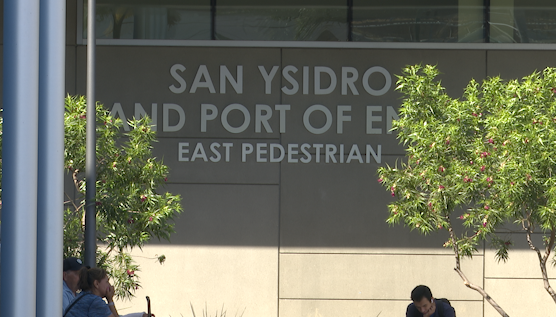[ad_1]
SAN DIEGO (Border Report) — Christian Ramirez, an activist in San Diego, has spent his life advocating for migrants, the homeless and those from humble origins. But 11 years ago, he decided to do something for himself: Sue the federal government on his own behalf.
It started in June 2010, when Ramirez recorded video and took pictures of U.S. Customs and Border Protection officers doing what he felt was suspicious at the San Ysidro Port of Entry.
Not long after, border officers confronted Ramirez, took his cell phone and deleted the images.

Ramirez told Border Report when officers forbid him from recording and they destroyed images, of something he believed was odd taking place in a public setting, he knew things had to change.
Months later, he sued, but it would take a decade to achieve a legal victory.
“It took us 10 years and several appeals but finally we were able to settle the case,” he said.
Ramirez said there were times he wanted to give up, but with help from his attorney and the American Civil Liberties Union, his case has brought about changes in the way CBP officers and agents interact with the public around ports of entry.
“If agents are conducting operations in public view, anyone, whether a member of the media or member of the general public can go there and photograph their activities,” he said.
Ramirez’s saga began when he noticed CBP officers patting down female pedestrians who were on their way out to Tijuana.
“I took out my Blackberry at the time and started photographing them, took a few pictures and kept walking,” he said. “Security officers stopped me and said ‘you can’t take pictures.’”
Ramirez said he was with his wife and continued walking until they encountered a line of officers.

“As we walked down the pedestrian bridge there was a line of federal agents waiting,” Ramirez said. “They basically told me, ‘Hand over your cell phone or we’re going to take you down.’”
Fearing for his safety, Ramirez gave them his phone and watched as agents deleted the material he had recorded.
Shortly thereafter, he decided to file the lawsuit believing his First Amendment rights had been violated.
“The argument of the government was that at ports of entry, whether inside or outside, within public view were off-limits to videotape,” he said. “All of us, regardless of whether we’re 1,000 miles inside the United States or on the border, have the right. … the First Amendment gives us the right to document the public actions of law enforcement.”
Ramirez said he did not win any money, nor did he ask for any sum, and that he just wanted justice.
According to U.S. Customs and Border Protection, it has made changes required as part of a settlement including the installation of signs that prohibited the use of cameras in certain public areas.
A spokesperson for the agency issued the following statement, CBP has made the changes in signage that were agreed upon as part of the settlement by February of 2021.
“CBP also has notified its employees of the terms of the settlement, including that, except as provided in the settlement, they may not interfere with visual or audio recording in outdoor, publicly accessible areas at our land ports. It should be noted that the settlement did not impact the agency’s ability to restrict recording in ‘restricted access areas’ of our land port, including indoor facilities and outdoor areas used regularly by CBP employees to process or inspect individuals or vehicles crossing any international border, including any outdoor areas to which members of the public generally do not have access unless they are crossing the United States border.”
Ramirez says he’ll continue to work to hold the agency. He recently penned an op-ed in the San Diego Union-Tribune in which he detailed his and another similar incident involving a photographer, and other “abusive behavior.”
Ramirez said the settlement is an important milestone that will aid border residents to hold border authorities accountable.
“The best way to provide security for our country is to exercise and defend the First Amendment of the Constitution,” he said.
[ad_2]
Source link








